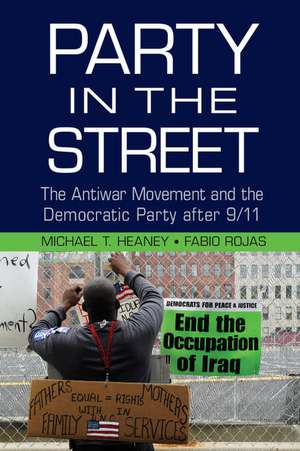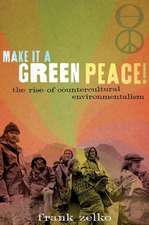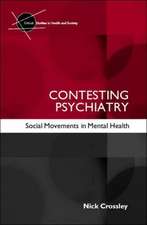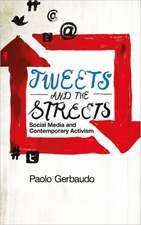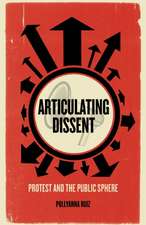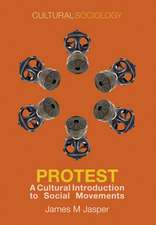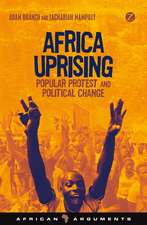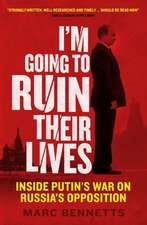Party in the Street: The Antiwar Movement and the Democratic Party after 9/11: Cambridge Studies in Contentious Politics
Autor Michael T. Heaney, Fabio Rojasen Limba Engleză Paperback – feb 2015
| Toate formatele și edițiile | Preț | Express |
|---|---|---|
| Paperback (1) | 232.91 lei 6-8 săpt. | |
| Cambridge University Press – feb 2015 | 232.91 lei 6-8 săpt. | |
| Hardback (1) | 688.98 lei 6-8 săpt. | |
| Cambridge University Press – feb 2015 | 688.98 lei 6-8 săpt. |
Din seria Cambridge Studies in Contentious Politics
-
 Preț: 178.72 lei
Preț: 178.72 lei -
 Preț: 159.58 lei
Preț: 159.58 lei -
 Preț: 197.42 lei
Preț: 197.42 lei - 9%
 Preț: 626.73 lei
Preț: 626.73 lei -
 Preț: 210.35 lei
Preț: 210.35 lei -
 Preț: 214.15 lei
Preț: 214.15 lei -
 Preț: 199.89 lei
Preț: 199.89 lei - 8%
 Preț: 564.60 lei
Preț: 564.60 lei -
 Preț: 289.10 lei
Preț: 289.10 lei -
 Preț: 238.15 lei
Preț: 238.15 lei -
 Preț: 232.48 lei
Preț: 232.48 lei -
 Preț: 156.73 lei
Preț: 156.73 lei -
 Preț: 199.34 lei
Preț: 199.34 lei -
 Preț: 226.68 lei
Preț: 226.68 lei -
 Preț: 258.44 lei
Preț: 258.44 lei -
 Preț: 268.71 lei
Preț: 268.71 lei -
 Preț: 222.97 lei
Preț: 222.97 lei - 11%
 Preț: 624.67 lei
Preț: 624.67 lei -
 Preț: 465.33 lei
Preț: 465.33 lei -
 Preț: 220.90 lei
Preț: 220.90 lei -
 Preț: 264.09 lei
Preț: 264.09 lei -
 Preț: 197.48 lei
Preț: 197.48 lei -
 Preț: 224.88 lei
Preț: 224.88 lei -
 Preț: 233.28 lei
Preț: 233.28 lei -
 Preț: 300.60 lei
Preț: 300.60 lei - 11%
 Preț: 542.46 lei
Preț: 542.46 lei - 11%
 Preț: 680.02 lei
Preț: 680.02 lei -
 Preț: 226.34 lei
Preț: 226.34 lei -
 Preț: 299.22 lei
Preț: 299.22 lei -
 Preț: 197.48 lei
Preț: 197.48 lei -
 Preț: 225.80 lei
Preț: 225.80 lei - 14%
 Preț: 775.94 lei
Preț: 775.94 lei - 11%
 Preț: 543.82 lei
Preț: 543.82 lei -
 Preț: 246.16 lei
Preț: 246.16 lei - 11%
 Preț: 543.49 lei
Preț: 543.49 lei - 11%
 Preț: 450.47 lei
Preț: 450.47 lei
Preț: 232.91 lei
Nou
Puncte Express: 349
Preț estimativ în valută:
44.58€ • 46.80$ • 36.83£
44.58€ • 46.80$ • 36.83£
Carte tipărită la comandă
Livrare economică 30 ianuarie-13 februarie 25
Preluare comenzi: 021 569.72.76
Specificații
ISBN-13: 9781107448803
ISBN-10: 1107448808
Pagini: 325
Ilustrații: 29 b/w illus. 15 tables
Dimensiuni: 155 x 230 x 20 mm
Greutate: 0.43 kg
Editura: Cambridge University Press
Colecția Cambridge University Press
Seria Cambridge Studies in Contentious Politics
Locul publicării:New York, United States
ISBN-10: 1107448808
Pagini: 325
Ilustrații: 29 b/w illus. 15 tables
Dimensiuni: 155 x 230 x 20 mm
Greutate: 0.43 kg
Editura: Cambridge University Press
Colecția Cambridge University Press
Seria Cambridge Studies in Contentious Politics
Locul publicării:New York, United States
Cuprins
Introduction; 1. The party in the street and its historical context; 2. Partisan politics at the water's edge?; 3. Multiple identities and party-movement interaction; 4. Identities and grassroots participation; 5. Identities and organizational action; 6. Identities and legislative agendas; 7. Beyond the antiwar movement and the Democratic Party; 8. Social movements in a polarized America; Epilogue.
Recenzii
'Party in the Street shows how the antiwar movement stalled once it helped elect a president who seemed to agree with its goals - even as wars continued. This engaging and provocative book highlights an essential dilemma for activists in America: whether to work within mainstream politics or take the struggle outdoors. It is essential reading for anyone concerned with the fate of the peace movement or the rise and decline of social movements more generally.' David S. Meyer, University of California, Irvine
'Heaney and Rojas gathered data from tens of thousands of participants in anti-war protests in a massive empirical undertaking developing new methods of survey analysis and force us to reconceive the linkages between political parties and social movements. Who uses whom? Who needs the other more? What happens to a social movement when party activists attempt to use the movement for their own purposes? These are of course old questions in the study of social movements, but no scholars until now have explained so clearly the dangerous but inevitable linkages between party and movement activists. Party in the Street moves us forward methodologically, substantively, theoretically and empirically, and will interest those concerned with political parties, elections, social movements, and the struggle to end the War in Iraq. A tour de force.' Frank R. Baumgartner, University of North Carolina, Chapel Hill
'Heaney and Rojas have written a masterful work on the fraught relationship between political parties and social movements. In a theoretically innovative and empirically rich account, they show how individuals' partisan loyalties 'aggregate up', sometimes fueling collective action for policy change - and sometimes dooming it.' Kristin A. Goss, Duke University, North Carolina
'The blockbuster finding in Party in the Street is its careful documentation of the role of political partisanship in first filling the ranks of the anti-war movement in the early 2000s, then emptying it out again after partisan control of the presidency shifted in 2009. More broadly, the book provides a theoretically and empirically rich account of the interplay of movement mobilization and partisan political mobilization.' Pamela Oliver, University of Wisconsin, Madison
'In Party in the Street, Heaney and Rojas show how overlapping movement and partisan identities shape political activism and the ebb and flow of social movements themselves. Focusing on the puzzle of activism in the post-9/11 antiwar movement, the authors offer a unique and compelling theoretical framework and marshal an impressive array of empirical evidence, ranging from organizational and legislative networks to movement event data. Taking excellent advantage of the unique opportunity to study a movement as it unfolded, the authors not only engage in participant-observation but field well-designed survey instruments to protesters as well … producing unprecedented insight into the conflicting motivations and goals of movement activists. The result is a distinctive accounting of the dynamics of various political identities that helps us understand the political fortunes of both social movements and political parties in the United States.' Christina Wolbrecht, University of Notre Dame, Indiana
'The sheer volume of hypotheses tested and the many methods used to address Party in the Street's research questions are impressive. Heaney and Rojas expertly utilize interviews, participant observations, media and organizational materials, and surveys that allowed network and regression analyses to make the case that while people care about issues and their identification with social movements matter, so do their connections to traditional politics.' Lisa Leitz, Mobilization
'Heaney and Rojas have done an incalculable service to our understanding of the relationship between parties and movements' American Journal of Sociology
'Heaney and Rojas gathered data from tens of thousands of participants in anti-war protests in a massive empirical undertaking developing new methods of survey analysis and force us to reconceive the linkages between political parties and social movements. Who uses whom? Who needs the other more? What happens to a social movement when party activists attempt to use the movement for their own purposes? These are of course old questions in the study of social movements, but no scholars until now have explained so clearly the dangerous but inevitable linkages between party and movement activists. Party in the Street moves us forward methodologically, substantively, theoretically and empirically, and will interest those concerned with political parties, elections, social movements, and the struggle to end the War in Iraq. A tour de force.' Frank R. Baumgartner, University of North Carolina, Chapel Hill
'Heaney and Rojas have written a masterful work on the fraught relationship between political parties and social movements. In a theoretically innovative and empirically rich account, they show how individuals' partisan loyalties 'aggregate up', sometimes fueling collective action for policy change - and sometimes dooming it.' Kristin A. Goss, Duke University, North Carolina
'The blockbuster finding in Party in the Street is its careful documentation of the role of political partisanship in first filling the ranks of the anti-war movement in the early 2000s, then emptying it out again after partisan control of the presidency shifted in 2009. More broadly, the book provides a theoretically and empirically rich account of the interplay of movement mobilization and partisan political mobilization.' Pamela Oliver, University of Wisconsin, Madison
'In Party in the Street, Heaney and Rojas show how overlapping movement and partisan identities shape political activism and the ebb and flow of social movements themselves. Focusing on the puzzle of activism in the post-9/11 antiwar movement, the authors offer a unique and compelling theoretical framework and marshal an impressive array of empirical evidence, ranging from organizational and legislative networks to movement event data. Taking excellent advantage of the unique opportunity to study a movement as it unfolded, the authors not only engage in participant-observation but field well-designed survey instruments to protesters as well … producing unprecedented insight into the conflicting motivations and goals of movement activists. The result is a distinctive accounting of the dynamics of various political identities that helps us understand the political fortunes of both social movements and political parties in the United States.' Christina Wolbrecht, University of Notre Dame, Indiana
'The sheer volume of hypotheses tested and the many methods used to address Party in the Street's research questions are impressive. Heaney and Rojas expertly utilize interviews, participant observations, media and organizational materials, and surveys that allowed network and regression analyses to make the case that while people care about issues and their identification with social movements matter, so do their connections to traditional politics.' Lisa Leitz, Mobilization
'Heaney and Rojas have done an incalculable service to our understanding of the relationship between parties and movements' American Journal of Sociology
Notă biografică
Descriere
Party in the Street explores the interaction between political parties and social movements in the United States.
